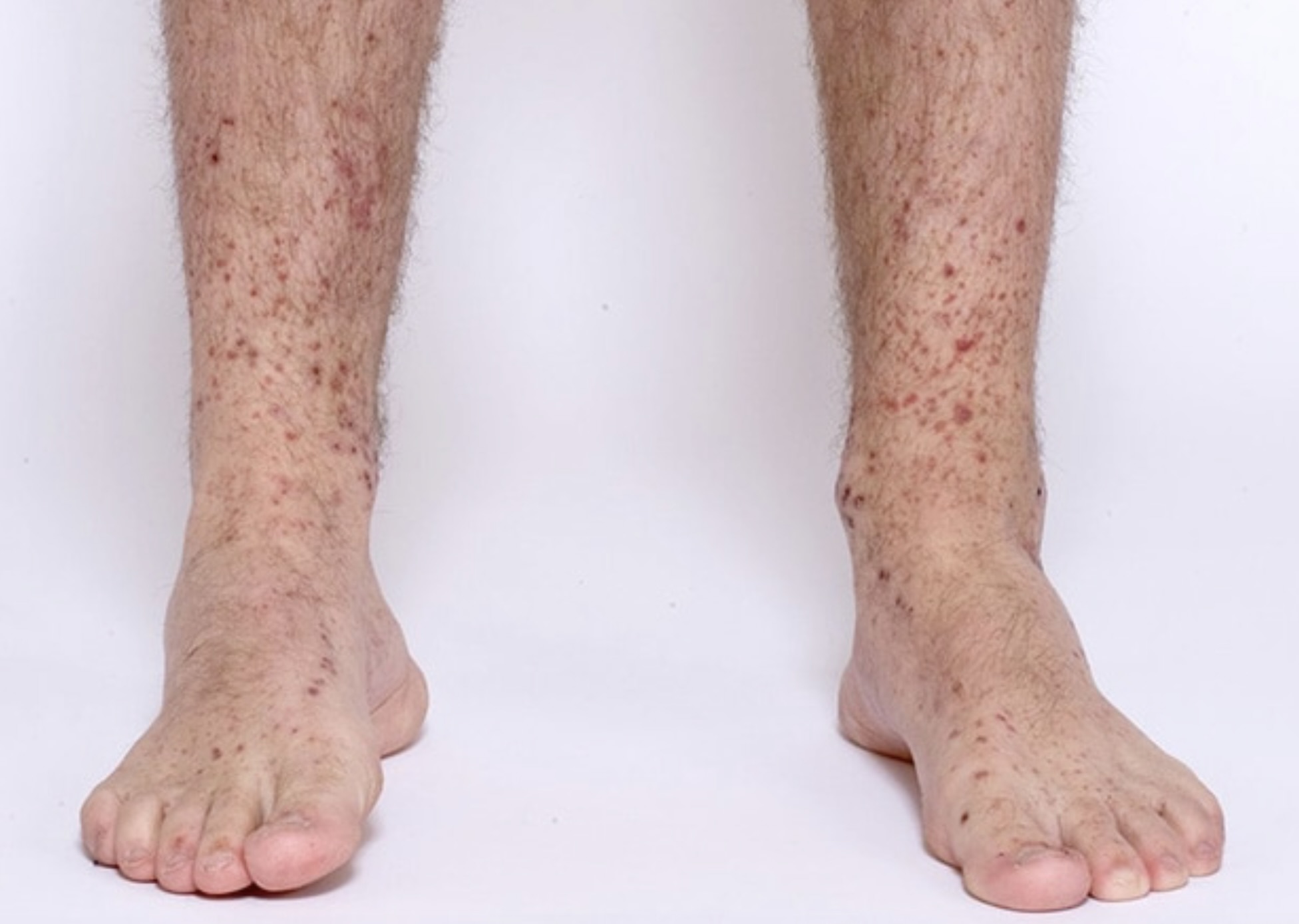Henoch-Schonlein Purpura: Symptoms, Causes, Treatment
What are the symptoms of Henoch-Schonlein purpura?
Henoch-Schönlein purpura (HSP) is a type of vasculitis, which is inflammation of the blood vessels. It most commonly affects children but can also occur in adults. The classic symptoms of HSP include:
- Purpura: This is the most characteristic symptom of HSP. Purpura are small, red or purple spots or patches on the skin caused by bleeding under the skin. They typically occur on the buttocks and lower extremities but can also appear on other parts of the body.
- Joint pain and swelling: HSP can cause joint pain and swelling, particularly in the knees and ankles. The joints may feel stiff and tender.
- Gastrointestinal symptoms: Many people with HSP experience gastrointestinal symptoms, such as abdominal pain, nausea, vomiting, and sometimes bloody stools. In severe cases, there may be gastrointestinal bleeding.
- Kidney involvement: HSP can affect the kidneys, leading to symptoms such as blood in the urine (hematuria), protein in the urine (proteinuria), and decreased kidney function. In some cases, this can progress to more serious kidney problems.
- Other symptoms: Some people with HSP may experience fever, malaise (feeling generally unwell), and swelling of the face, hands, or feet.
The symptoms of HSP can vary widely from person to person, and not all individuals will experience all of these symptoms. In most cases, the symptoms of HSP resolve on their own over a few weeks to months, and treatment is aimed at relieving symptoms and preventing complications. However, in some cases, especially when the kidneys are affected, HSP can lead to more serious complications and may require more intensive treatment. It is important to see a healthcare provider for evaluation.
What are the causes of Henoch-Schonlein purpura?
Henoch-Schönlein purpura (HSP) is an autoimmune disorder, which means that the body’s immune system mistakenly attacks its own tissues. The exact cause of HSP is not fully understood, but several factors may contribute to its development:
- Immune system dysfunction: In HSP, the immune system is thought to become overactive and produce antibodies that target the blood vessels. This leads to inflammation and damage to the blood vessel walls.
- Genetics: There may be a genetic predisposition to developing HSP, as it tends to run in families. However, specific genetic factors that contribute to HSP are not yet well understood.
- Infections: HSP often occurs after a bacterial or viral infection, such as an upper respiratory infection or a gastrointestinal infection. It is believed that the infection triggers an abnormal immune response that leads to the development of HSP in susceptible individuals.
- Environmental factors: Certain environmental factors, such as exposure to certain medications, chemicals, or allergens, may also play a role in the development of HSP. However, the specific triggers are not well defined.
Overall, HSP is believed to be a multifactorial condition, meaning that it likely results from a combination of genetic, immune, and environmental factors. Additional research is needed to fully understand the underlying causes of HSP and develop more effective treatments.
What is the treatment for Henoch-Schonlein purpura?
The treatment for Henoch-Schönlein purpura (HSP) focuses on relieving symptoms, managing complications, and preventing long-term damage. The approach to treatment may vary depending on the severity of the symptoms and the organs involved. Some common treatment strategies for HSP include:
- Pain relief: Over-the-counter pain relievers, such as acetaminophen or ibuprofen, may help relieve joint pain and fever.
- Rest and hydration: Getting plenty of rest and avoiding dehydration can help the body recover and reduce symptoms.
- Skin care: Keeping the skin clean and moisturized can help prevent irritation and infection of the purpura.
- Corticosteroids: In cases of severe or persistent symptoms, corticosteroids may be prescribed to reduce inflammation and suppress the immune system.
- Immunosuppressive agents: In some cases, immunosuppressive medications may be used to reduce inflammation and prevent further damage to the blood vessels.
- Blood pressure management: If HSP affects the kidneys, medications to control blood pressure may be necessary to prevent further kidney damage.
- Monitoring and follow-up: Regular monitoring of kidney function and blood pressure is important to detect and manage any complications early.
Most cases of HSP resolve on their own within a few weeks to months, and treatment is aimed at managing symptoms and preventing complications. However, some individuals may experience more severe or recurrent episodes of HSP that require more intensive treatment and monitoring. It’s important for individuals with HSP to work closely with their healthcare providers to develop a treatment plan that meets their needs and reduces the risk of long-term complications.




